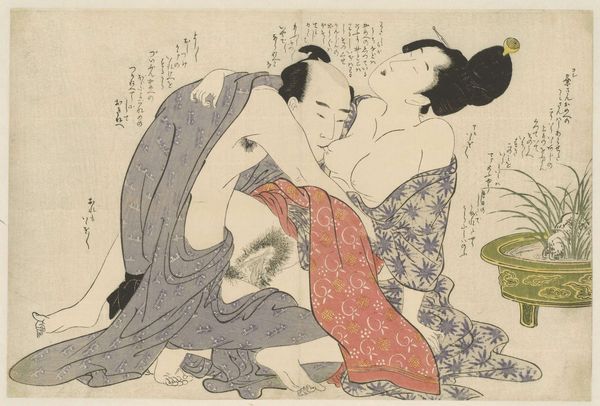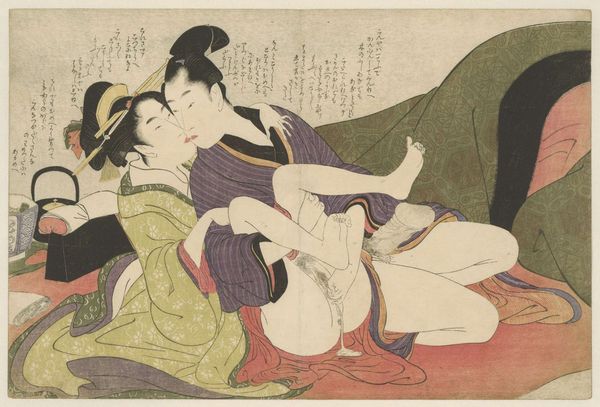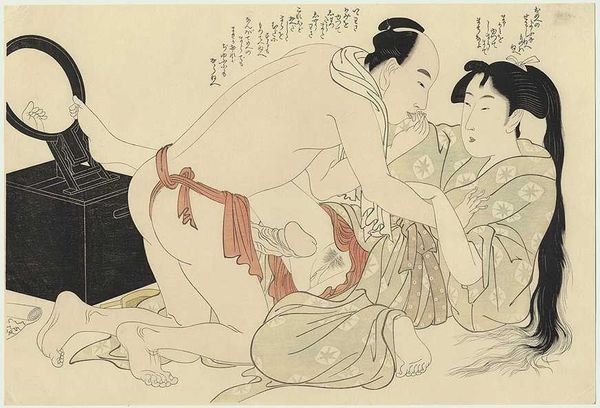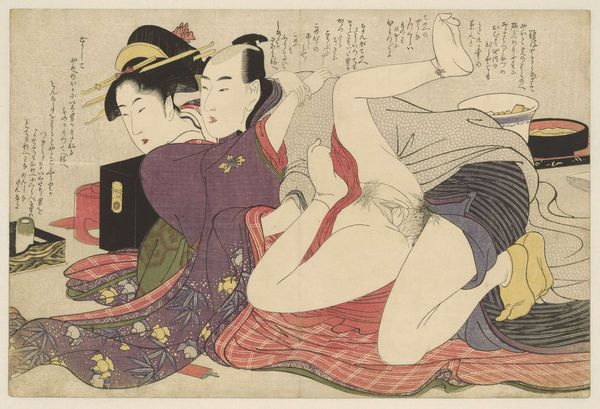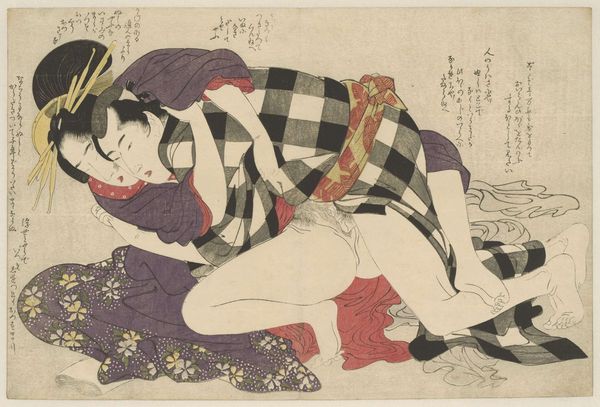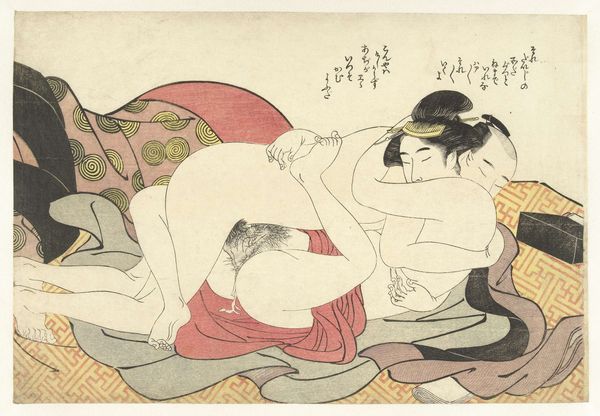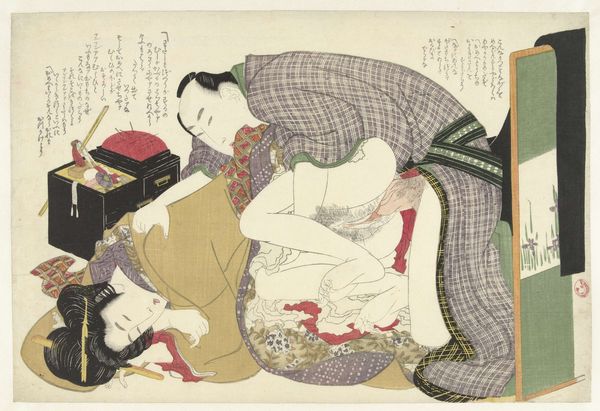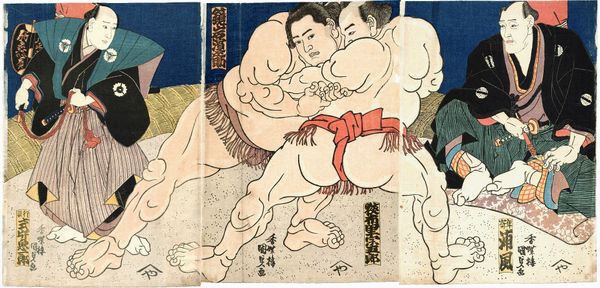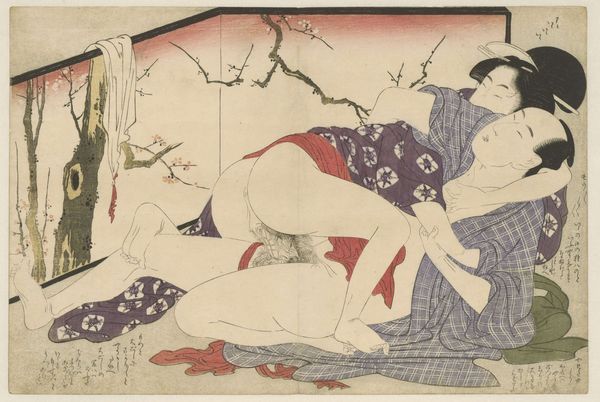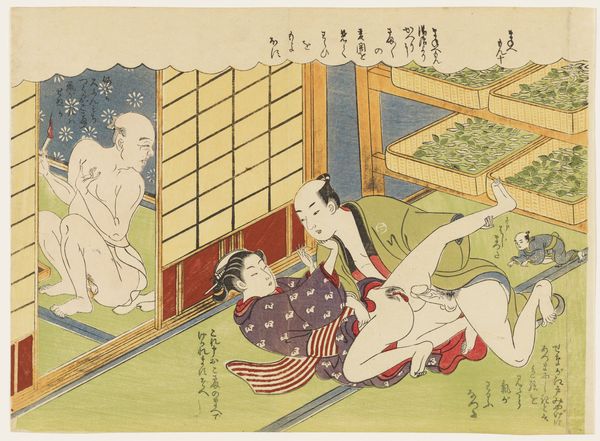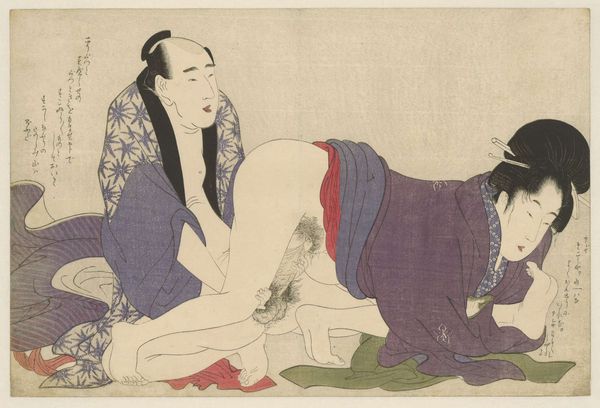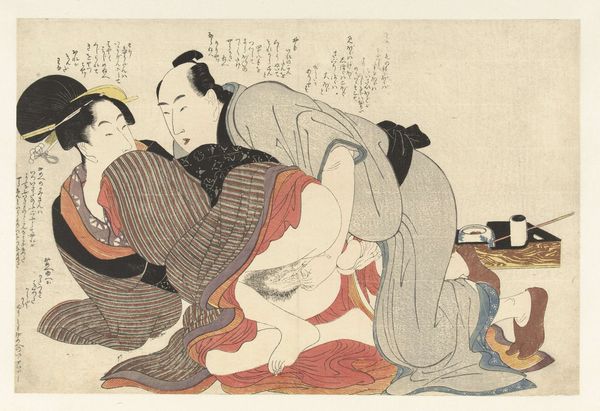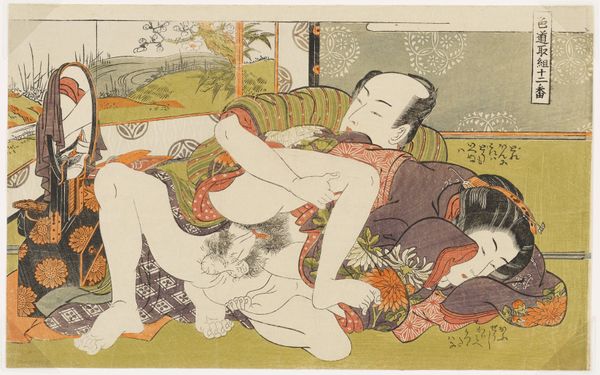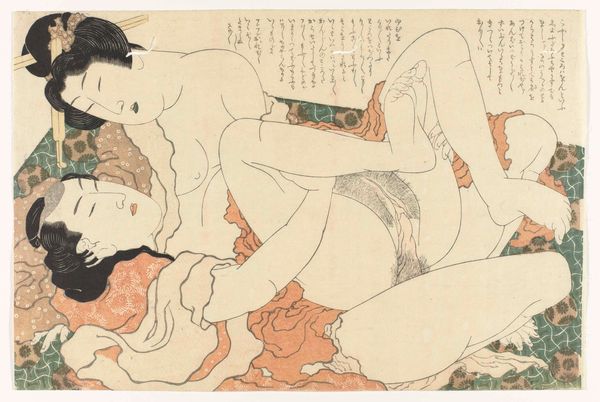
print, woodblock-print
#
portrait
#
narrative-art
# print
#
caricature
#
ukiyo-e
#
figuration
#
woodblock-print
#
erotic-art
Dimensions: height 254 mm, width 382 mm
Copyright: Rijks Museum: Open Domain
Kitagawa Utamaro made this woodblock print, "Lovers in front of a mirror," during the Edo period in Japan. The print is an example of "shunga," or erotic art, which was a popular genre despite official disapproval. Here, we see a couple engaged in an intimate act, with the man applying makeup to the woman's lips as she gazes into a mirror. Shunga prints circulated widely and were enjoyed by people of all social classes. They often depicted idealized scenes of pleasure and were associated with fertility and good fortune. However, it's important to remember that the production and consumption of these images were shaped by social and cultural norms. For example, the depiction of gender roles and expectations might not align with contemporary values. As historians, we can consult a variety of sources to better understand the historical context of shunga prints, including contemporary literature, social commentaries, and government records. By doing so, we gain a deeper understanding of the complex relationship between art, sexuality, and society in Edo-period Japan.
Comments
No comments
Be the first to comment and join the conversation on the ultimate creative platform.
